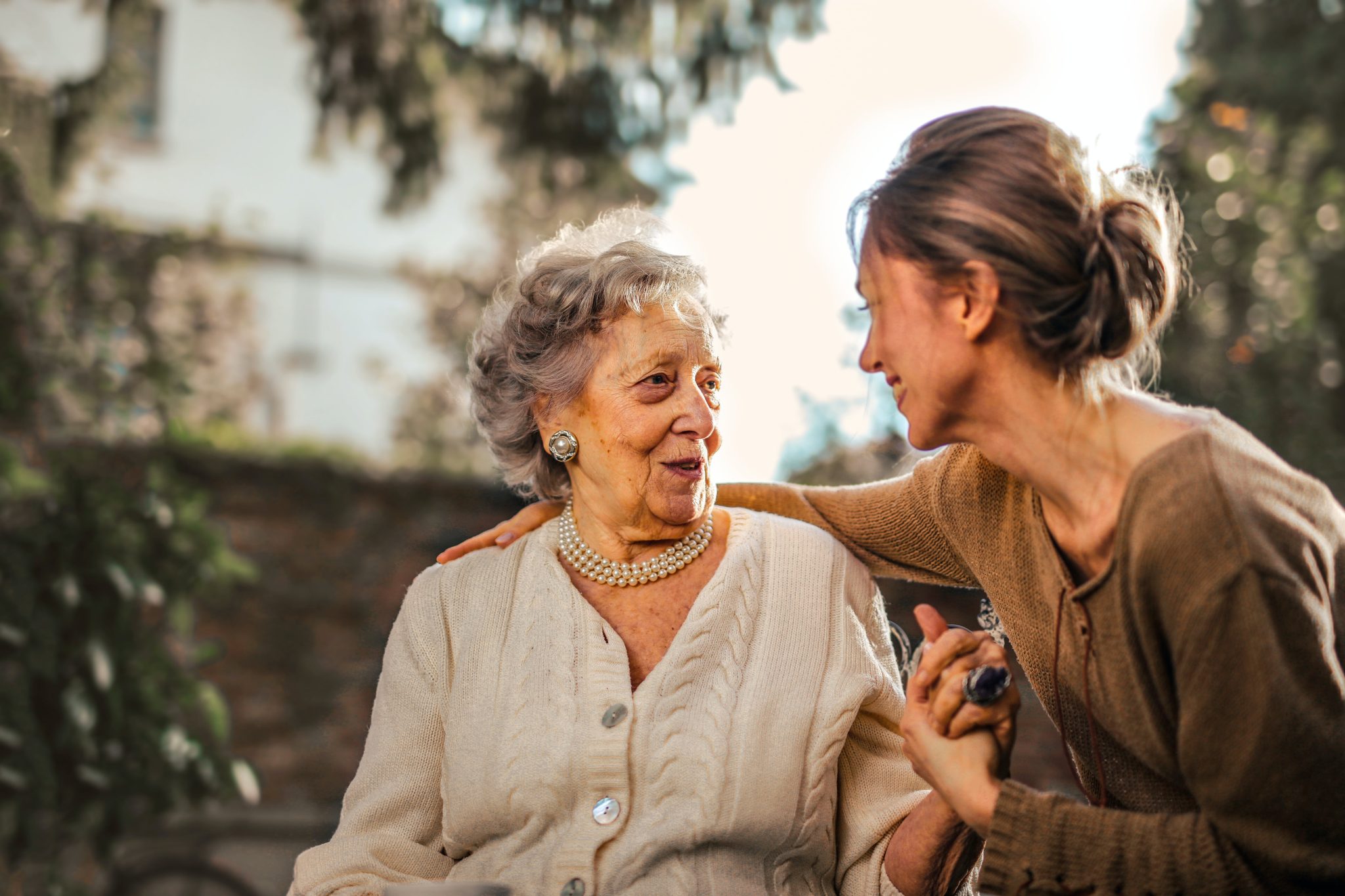Welcome to the wonderful world of caregiving! You’ve chosen a career path that gives back to your community, can provide stability, is lots of fun, challenging and rewarding. You’ve likely already put a lot of thought into this career path, and may already be way on your way to full time work as a caregiver, perhaps you’ve already met and are working with your first client!
As with any job, there are going to be some ups and downs as you get into the swing of things. You’ll figure out how to work with different personalities and how to handle difficult situations. Even if you come into this job well prepared, there is still going to be a learning curve, so don’t be frustrated when you inevitably come across some challenges. The best way to learn is by doing, but it’s also useful to read! The following are just some of the things you should consider when starting off as a caregiver.
Know Your State’s Requirements, and Learn, Learn, Learn
Did you know that every state has different education requirements for caregivers? As per the Care Academy, there are generally around three different tiers of education level requirements in different states. Some, like New York, require a minimum of 40 hours of training, with possible requirements for further specific training. Other states, like Arizona, don’t have any requirements at all. It’s important to know the requirements in your state to ensure you’re in compliance, plus it’s good practice to have the experience needed should you think it’s likely you ever seek out work in a different location.
Regardless of the education requirements in your state, it’s never a bad idea to further the knowledge you have in your field. You’re dealing with a vulnerable population and it’s important you treat that with all of the care and respect possible. There are always courses and lectures available so that you can expand your skill set. This is especially important if you are dealing with seniors who are struggling with their mental health. Caregivers can be expected to provide a lot of support for emotional issues and you need to feel comfortable with where your limits are.
Another important consideration when it comes to education is where you want to work. Although your state might not have strict requirements, it’s likely that the best jobs available will. It’s very likely that you will begin your career with an agency, and the most desirable agencies are going to be going after caregivers with the most experience and the best education background. Showing that you’ve put in the work will look great on your resume, and could majorly up your salary as well. If you specialize in a particular niche that’s even more useful to your career. So, don’t just to the bare minimum. Stay current and keep learning – it’ll benefit your career and those that you care for.
Caregiving is Emotional
When you are first hired as a caregiver you might think it’s just another job you can clock in and out of. You might have been hired to help with basic cleansing needs or to help someone with getting around their house. And yes, it’s very likely that your job as a caregiver will involve some housekeeping, personal hygiene tasks and general errands. But often the most important part of being a caregiver is the emotional connection you develop with the senior you care for. For some seniors, their caregiver is the biggest relationship they have in their lives. They may see you more than anyone else. While this might sound sad to you, it is often just a reality of their circumstances. Their spouse might have passed away, or their circle of friends have passed or moved away. They might not have children, or they could live far away or be too busy to visit frequently. Even if the senior you care for still has many friends, it might not be possible to facilitate regular visits due to where everyone lives in the city combined with any mobility needs.
Because of this, a big part of your work as a caregiver is companionship. You are there to be a friend to the senior you care for, and to provide them with the emotional support they might not be receiving from other people in their life. This element of caregiving sets it apart from a lot of other jobs. It isn’t always easy to let go of the conversations you might have and the secrets you might learn once you get home at the end of the day. It can be beautiful, but also a heavy burden to bear. That’s why…
Protect Yourself From Burnout
Nobody wants to think about burnout happening in a job they haven’t even started yet, but, as stated by the Cleveland Clinic, it happens alarmingly frequently to caregivers. This happens because, as stated above, it’s a highly emotional job and it can be easy to neglect your own mental health and physical wellness because you can get so wrapped up in helping others. While it is certainly wonderful to dedicate your life to helping others, you have to remember that in order to provide the best care to others you need to help yourself first. You’ll be no use to the senior you care for if you can’t get out of bed because you are spiraling from anxiety and exhaustion.
Something else that can happen from becoming too emotionally involved with clients is compassion fatigue. Compassion fatigue is when you have absorbed so much trauma and mental distress from your client that you are no longer able to emotionally engage with them and you start experiencing feelings of apathy and detachment. This can often happen in tandem with burnout.
So how do you stop this from happening to you? Well, there’s no one right way to go about preventing burnout, but here are a few tips:
- Talk to more experienced coworkers – find out what’s worked for them, and get advice on how to handle burnout if it does happen.
- Protect your mental health – consider speaking with a therapist or a counselor. It’s a good practice just to be able to process your own feelings about the job, even if you might not think it’s necessary right now.
- Stay on top of your health – it’s always easier to think straight when you’re maintaining healthy habits. Watch your diet and aim to get regular exercise. And don’t forget to get lots of sleep! The Sleep Health Foundation even says that improving your sleep may help to prevent or correct burnout!
- Take breaks when you need – we live in a culture that values hard work, but learn to recognize when you need a break. Sometimes you just need a day to reset. Don’t convince yourself to push through if you know you’re nearly at a breaking point.
- Make time for other relationships – don’t let the senior you care for be the only person in your life. Don’t abandon your support network. This doesn’t mean you need to go out on the town, maybe you just relax at home with snacks and a movie. This can often give your heart and brain just the reset it needs.
Burnout is a very serious issue that left untreated could have dire consequences. This is not meant to scare you off, but to make you prepared for the challenges of this job. If you look after yourself and can recognize the signs, then hopefully you can avoid burnout during your career.
You Might Not Click Immediately
While you might be eager to get to know your new best friend, things might not be as seamless as you’d like them to be right off the bat. The senior you care for might be reluctant to let a new person into their life. They might even be angry or embarrassed about some of the tasks you need to help them with, and might feel that their family has forced them into this situation. It’s totally normal for there to be a bit of awkwardness at the beginning, but don’t let it throw you. Just like with any new relationship, it might not feel totally comfortable at the beginning. Remember to be patient and to act with kindness. This is new for both of you. Be genuine and ask questions to get to know the senior you care for. Once you know more about them and what they like and dislike, you’ll eventually get into a groove. Just give it time.
You Don’t Have to Do Everything
While it can be tempting to say yes to every job, there might be certain tasks you’re not comfortable with, and that’s totally OK. You might discover that there are certain requirements for some seniors that you aren’t comfortable with, and that’s fine. Just be sure to communicate any specifics with any agency or individual you’re working with. You don’t need to have a reason, but you do need to be up front. Don’t say you’re fine with driving someone to their errands if you know that you are not. Every senior deserves to have their needs met, and there are plenty of other people you could be a great fit with without pushing past your own boundaries.
Organization is Your Friend
As a caregiver it is often up to you to stay on top of any appointments or events the senior you care for has. You’ll always want to know what medications they’re taking and when. Oh, and don’t forget you’ll likely be helping them keep their house or apartment in order. If you’re not organized in your own home that’s OK, but you’ll definitely want to learn to be organized for this job!
There are lots of ways to help you stay organized, especially if you’re not someone who that comes naturally to! Write everything down in a schedule, either a physical one or through an app on your phone. Review it every morning before you start the day so you don’t miss anything. Set phone alerts for anything that can’t be missed. Write check lists of tasks that need to be completed each day – don’t forget to check them off once you’ve completed each one, it’s the best part! Another good way to stay organized is by attending to tasks as soon as possible. It’s harder to miss things if they haven’t piled up on top of each other like old mail.
Staying organized in your job as a caregiver will not only impress your client and your boss, but it will also make the job easier and more enjoyable for you.
Watch for Changes
Before long, you’re going to get to know your client very well. That means you’re likely one of the first people who might notice any changes to their mental state. As your client ages and goes through various life transitions, it’s quite likely that they might experience symptoms of depression or anxiety. This is important for you to look out for so that you can help them seek help.
In other cases, you might notice a deterioration of their cognitive state, which could signal a memory condition such as Alzheimer’s disease. While it’s never enjoyable to have to witness someone struggling with their mental health, if you are able to catch a condition in its earliest stage you’ll be giving the senior you care for the best chance at living the best life possible.
Know Your Limits
While we’ve already talked about how emotional caregiving can be, it’s so important that you don’t provide more than you’re capable of. Yes, you are providing a lot of emotional support, but you are not trained to be a mental health specialist. If you feel that you are being tasked with more than you are trained for, then it’s important to encourage the senior you care for to reach out to a trained mental health therapist or counselor. Not only will this help you to prevent burnout, but it is always what is best for them. You might be a highly compassionate and intelligent individual, but there are some topics that are just too delicate to address without the proper training. Don’t assign yourself work that you’re not qualified for, it’s OK to pass some issues on to other people.
There’s a Big Community
Thankfully, there are so many other caregivers out there to help you on this exciting new journey, so don’t worry, you don’t have to do this alone. Find other caregivers that you can vent to, share funny stories and heartwarming stories with, and ask all the questions of. This way you can support each other through difficult times, and eventually, when you have some more experience under your belt, you can pass on all the knowledge you’ve learned to someone else who is just entering the caregiving world.
There are so many things you will learn in your first few years as a caregiver, and these were just a few. Hopefully this gave you a bit of insight into the job, and has made you feel more prepared to tackle this new career. Good luck out there, and take care!









